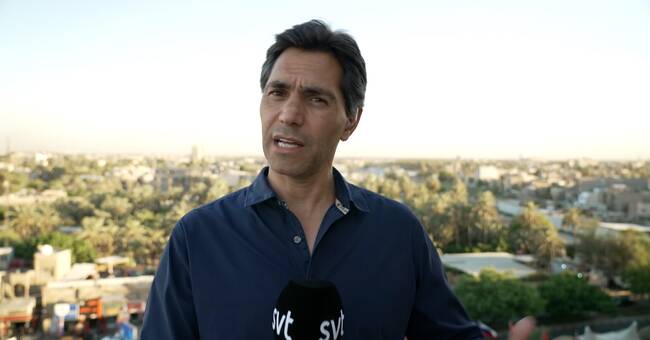Al-Qaeda and terrorism
Following the terrorist attacks, the United States declared "war on terrorism".
The then US President George W Bush promised to defeat Al-Qaeda and other terrorist groups.
The main target was to arrest or kill Al-Qaeda leader Usama Bin Laden, the mastermind behind the 9/11 attacks.
It took a long time, 10 years, but in May 2011, Bin Laden was killed in his hiding place in a villa in Pakistan.
Over the years, the United States has also arrested and killed many high-ranking al-Qaeda terrorists.
Today, al-Qaeda is weakened and has been deterred from further major terrorist attacks in the United States or against US targets.
But al-Qaeda remains, and has spread and now operates in several countries, including West Africa and Southeast Asia.
Al-Qaeda formed the Islamic State, IS.
IS branch in Afghanistan has shown unimaginable cruelty.
They have bombed weddings, girls' schools and recently at Kabul airport up to 170 people were killed, including 13 American soldiers
Al-Qaeda, IS and other terrorist groups continue to spread death and devastation in the Middle East and other parts of the world.
Afghanistan - back on square one
The 9/11 terrorist attacks were planned from Afghanistan, where al-Qaeda and Osama Bin Laden had been given refuge by the Taliban regime.
Because the Taliban refused to extradite Osama Bin Laden, the United States invaded the country and overthrew the Taliban.
The invasion itself went smoothly.
But to completely defeat the Taliban and at the same time build a capable government and army proved much more difficult than the United States thought.
After 20 years, the United States' longest war, the Americans left Afghanistan on August 31 this year.
They did not even have time to leave before the Taliban regained power - and now they are stronger than they have ever been.
This time, the Taliban control almost the entire country, even more territory than when they were in power between 1996-2001.
The Taliban has promised the United States that it will not allow international terrorist organizations to seek refuge in Afghanistan.
But it can be easier said than done.
Al-Qaeda terrorists are in the country and have also fought with the Taliban and helped retake Kabul.
Now the Afghan people fear a return to the 1990s when the Taliban ruled with brutality, oppression and tyranny.
Iraq - divided, unstable and insecure
Several US presidents have promised to bring home troops from the "endless wars" in the Middle East.
There are still 2,500 US troops in Iraq.
They do not fight but train and give advice to the Iraqi army in their fight against IS terrorists.
According to President Joe Biden, the American soldiers will be taken home before the end of 2021.
The United States invaded Iraq in 2003. The reasons were many and changed over time.
It was first alleged that Iraq was involved in the 9/11 attacks, then that Iraq had weapons of mass destruction, and later that the United States wanted to establish democracy and freedom for the Iraqi people.
Allegations that then-President Saddam Hussein was involved in the September 11 terrorist attacks or that he had weapons of mass destruction did not prove true.
After the invasion, the Iraqi army and the Ba'athist party disbanded, leading to hundreds of thousands of Sunni Muslims losing their jobs while fearing the future.
Instead, the United States gave power to the country's majority, the Shia Muslims.
This led to a long-standing bloody sectarian civil war.
US action in Iraq also resulted in arch-enemy Iran gaining a stronger influence in Iraq.
The division in the country between Shia, Sunni, Christians, Yazidis, Kurds, jihadists and more means that it is never far to violence, anarchy and civil war.
The US goal of the invasions of Afghanistan and Iraq was to overthrow incumbent regimes, and instead install new US-friendly regimes.
It has failed, and the United States' handling of the countries has led to the United States severely damaging its reputation and trust in the Middle East.
The wars and terrorism in the Middle East have killed hundreds of thousands and injured even more.
The violence has led to large flows of refugees - which seem to continue.
Today, the region is a place people want to get away from.

